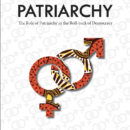African Business Culture Tips: Part 1 – The Cult of Precision
 A common complaint I have heard business partners and employees of global (“˜westernised’) companies in Africa often make is that the latter are too obsessed with exactitude. The more “formalisation” has pervaded corporate planning, and gone the way of the Daniel Prajogos and the TQM cult, the more frontline managers have retreated from the “cultural whirl” of the emerging marketplace, to borrow a phrase from the Anthropologist Ulf Hannerz, in order to focus on serving simplifications of the market to headquarters.
A common complaint I have heard business partners and employees of global (“˜westernised’) companies in Africa often make is that the latter are too obsessed with exactitude. The more “formalisation” has pervaded corporate planning, and gone the way of the Daniel Prajogos and the TQM cult, the more frontline managers have retreated from the “cultural whirl” of the emerging marketplace, to borrow a phrase from the Anthropologist Ulf Hannerz, in order to focus on serving simplifications of the market to headquarters.
MNCs issue a constant stream of demand for forecasts and blueprints and other such formal and quantitative perspectives from their Global South underlings. No one doubts that the cult of precision has made western-style management science a formidable tool for wealth creation. But in cultures that emerged not too long ago from traditional society, certainty and logical precision are not the absolute virtues they are in the west, simply because in traditional economies flux was a constant feature of economic decision-making: the rains sometimes came late, the snake serum that had been potent for so long suddenly failed, or some smart trader from the Coast stopped taking cowries without warning and started insisting on gold.
The best performers in traditional societies were rarely those most skilled in making rigorous-looking forecasts, but those best in taking advantage of the flux. In some ways, “smart fudging” and “flux adaptation” may not be as risky as sometimes supposed, and more valuable than often realised. The past decade saw many of the smartass-models glorifying certainty in the West fail miserably in serial financial crises and other mishaps.
No one is saying a business shouldn’t plan and aim for rigour, but there is some wisdom in not seeing a reticence about over-relying on firm forecasting as laziness and sloppiness hiding behind cheap philosophy.
Even if you are the super-analytical type who can’t sing a song except when the lyrics are laid out in a spreadsheet you still have to acknowledge that the studies do not vindicate an over-reliance on formal forecasting, even in the quantity-obsessed West. As Wharton’s Scott Armstrong pithily observed in 2001 after his extensive review of the principles underlying corporate forecasting in the West: “forecasters often ignore common sense”, a clear end-result of the emphasis on formal tools, necessarily internal to the business’ groupthink, and the marginalisation of the external cultural swirl.
The challenge this poses to Western thinkers is summed up in various chains of paradoxes in the thought of gurus like the MIT’s John Sterman who after gamely acknowledging that: “all models are wrong and humility about the limitations of our knowledge. Such humility is essential in creating an environment in which we can learn about the complex systems in which we are embedded…”, moves straight on to propose “formal models” and “scientific inquiry” tools as the surest paths to addressing the fundamental uncertainties confronting future planning, gleefully glossing over the tension
It does not surprise me that the work of Wharton’s Katherine Milkman and others continue to expose the psychological underbelly of the frequent inaccuracies we see in market forecasting today. Or that the Journal of Business Forecasting routinely reports over 55 percent dissatisfaction with forecasting accuracy in respondent companies.
Read Part 2 – CSR is Dead





